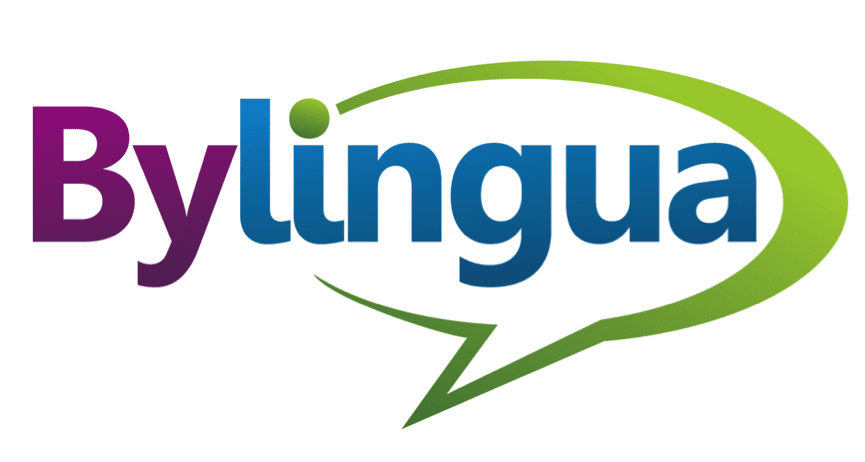日本語タイトル:「知識とスキルの違い」

日本でこれまでに1,000人近くの英語学習を教え、8,000回を超えるレッスンをしてきた中で、多くの人がある1つのことを信じていることに気が付きました。
「もっと勉強しなきゃ。」
もっと勉強することが悪いと言っているのではありません。
でも、これは英語学習者が「最も自分に足りていないもの」として信じていることのようなのです。
これに気付いた僕は、こう考えました。
日本人の英語学習者の多くが共通して持っている考えは、
「より多くの知識を手に入れれば、より上手に会話が出来るようになる」
なんだと。

学校生活を通じて、能力は知識により身に付けられると教えられてきています。
言語能力もまた、知識をテストする形(TOEICなど)で客観的に判断されています。
では、何年も(一般的には6年間、英会話学校やプライベートレッスンなどを受けてきた場合はもっと)学習を積み重ねてきたのに、平均的な日本人の英語学習者が流暢にネイティブスピーカーとコミュニケーションを取ることが出来ないのはなぜでしょうか?
答えは、「知識が足りないから」ですよね?
ですが、実際にはではそうでないと証明する、面白い例を見てみましょう。

あなたが、幼い子供で、ピアノが弾けるようになりたいと思っているとしましょう。
どうしますか?
そう、ピアノを習いますよね。
では、レッスンの中であなたの先生はピアノ(の情報)について、音楽(音楽理論)についてたくさん教えてくれます。そうすれば、あなたはピアノを弾けるようになるのですよね?
もちろん違います!
もし同じ考えでいけば、あなたがピアノを上手に弾くことが出来ないのは、知識が足りないからだということですよね。
しかし、これが事実でないことはみんなもう分かっています。
あなたがほとんどの人と同じなら、ピアノをすぐに弾き始めて、間違いをして、それを繰り返してテクニックを上達させていく、と考えるでしょう。
では、なぜ私たちは英語は別だと考えてしまうのでしょう?
この例をもう少し使って、なぜ学習者がネイティブの自然な英語を理解出来ないのかを見てみましょう。
さあ、あなたは再びピアノに向かっています。先生は、まずは普通のスピードの半分くらいのスピードで弾くように言います。
この半分のスピードで練習し、あなたは上手になります。リズムや指を動かすタイミングもバッチリです。
そして、ついに普通のスピードに挑戦します。
あなたの指はスピードについていけず 、あなたは自身を負け犬のように感じるかもしれません。

身に覚えがありますか?
それもそのはずです。
あなたが使ってきた英語学習の教科書が、あなたのリスニング力に対してやってきたことなのですから。
教科書の英語はゆっくりで、全ての単語やフレーズが理解出来るようになっています。
しかし、もしあなたが実際の会話に挑戦してみると、あなたは完全に準備不足です。
英語が同じようには聞こえない。
速すぎる。
簡単な単語でさえ、聞き取ることが難しい。
あなたがしてきた準備は、実践で結果を出すために必要なスキルを身に付ける役に立っていなかったということです。

知識は重要です。
もちろんです。
知識がなければ、単語、文法、コミュニケーションの方法を知ることは出来ません。
しかし、知識だけではあなたのスキルのレベルを上げることは出来ません。
それには、トレーニングが必要です。
ネイティブレベルの聴き取りをするトレーニング。
意見を構築して、それを言語で素早く表現するトレーニング。
会話に反応したり、質問したり、学習した文法や単語を自然な状況で使うトレーニング。
もちろん、知識もスキルも語学学習にとっても重要な要素です。
では、日本人はどうして両方をやらないのでしょう?
論理的に考えれば、そうするべきです。
でも、トレーニングには問題があるのです。
それは、不快感です。
学校生活や教科書を使った学習を通じて、もし完全に理解出来ない部分があれば復習するべきだと教わったことでしょう。
しかし、英語で映画を見たり、本を読んだり、実践の英会話を行っても、大部分の情報はまだ聞き取れず、理解出来することが出来ない状態だと思います。。。初めは。

難しいのは、あなたが英語で「やりたい!」と思っていることは、その不快感の反対側で待っているのです。
より簡単に旅行をしたければ、海外の人と明確にコミュニケーションを取る必要があります。次回の海外旅行では、話しかけられて固まってしまうことがないようにしよう!と思ったら、トレーニングを始めましょう。
もし、仕事での交渉や、友人とより細かいことについて英語で話したければ、英語で自分を表現し、質問し、難しいトピックについて話し合う必要があります。
だから、そう出来るようにトレーニングする必要があります。
英語の映画を自分の快適な家で見て、思う存分楽しみたい、と思っていても、まずはネイティブレベルのリスニングがスラスラ出来なければなりません。
だから、トレーニングが必要です。
あなたのスキルは、基礎的な知識がなければ上達することはありません。
しかし、どれだけたくさんの知識を得ても、欠けているスキルの穴を埋めることは出来ません。
知識の量は決して完璧にはならないでしょう。もしそうなったとしても、スキルを身に付けるトレーニングなしでは、ネイティブが言っていることを理解したり、流暢に英語で意見を述べることは出来ないと思います。
比較的少ない量の知識であっても、英語を機能的に使いこなせるだけのスキルは身につけられます、もし使い方を上手に学べば。
Good luck!

As I’ve taught close to 1,000 English learners in Japan, and well over 8,000 lessons, one belief repeatedly comes up.
“I need to study more.”

I’m not saying that studying more is a bad thing, but it seems to be the main thing that learners believe they need to do.
This has led me to realise that there’s a general belief among Japanese learners of English that more knowledge equals greater ability to speak.

After all, throughout school you’re taught that ability comes from knowledge. Language ability is objectively measured using tests of knowledge (i.e. TOEIC).
So, why is it then, that after years of study (typically 6 years of school, and possibly a lot more with 英会話, private lessons and more) that the average Japanese learner of English cannot functionally communicate with native speakers.
The answer must be knowledge, right?
Let’s look at a crazy example to demonstrate why this isn’t the case.

Imagine you’re a young child and you really want to learn to play the piano.
What do you do?
That’s right, take piano lessons.
So, in your lesson, your teacher spends time teaching you about the piano (information), and then about music (music theory) and then you are able to play the piano, right?
Of course not!
Well, if we take the same idea, it would mean that the reason you aren’t able to play the piano well is because of lack of knowledge.
However, I think we all know that isn’t true.
If you’re like most, you would expect to start playing the piano, making mistakes, improving your technique as you play.
To stretch the metaphor even further, let’s look at why learners can’t understand naturally spoken English.
Again, you’re at the piano and your teacher tells you to play the piece at half the normal speed.
You practice at this speed and you get very good at it. Your rhythm is good, you have the timing of finger movement perfectly.
Then you try to keep up with the metronome at the full speed.
Suddenly your fingers can’t keep up and you feel like a failure.

Sound familiar?
It should.
This is what language learning textbooks have done to your listening.
They slow down the speed so that you can catch, repeat, and study every word or phrase.
They slow down the speed so that you can catch, repeat, and study every word or phrase.
However, when you have a real interaction, you’re completely unprepared.
The language sounds different (merged sounds).
The speed is too fast (native speed).
Even the simplest words are hard to catch (rhythm and intonation)
All of your preparation hasn’t helped you to develop the skills necessary to actually ‘perform’ in a real situation.

So, what does this mean?
Knowledge is important.
Of course it is. Without it you wouldn’t have any vocabulary, grammar, or way of communicating at all.
However, knowledge alone will never raise your skill level.
For that, you need training.
Training to improve your ability to build opinions and express them quickly.
Training to react, ask questions, use the grammar and vocabulary you’ve studied in natural contexts.
Clearly, both are key components to language learning.
So, why don’t Japanese people do both.
In theory, they should.
But the problem with training is – it’s uncomfortable.
Years of school and textbooks have taught you that if you don’t understand it completely, you should review.
However, watching a movie in English, reading a book, or having a full conversation means you have lots of information you can’t catch…..at first.

The challenge is that everything you hope to do with English is the other side of that discomfort.
If you want to travel easily, you need to be able to clearly communicate with people abroad. If you don’t want to freeze up when you are there, you need to train.
If you want to enter business negotiations or talk about more detailed topics with friends, you need to learn how to express yourself, ask questions, and discuss difficult topics.
So you need to train.
Even if you want to watch English movies from the comfort of your own home and get the full enjoyment out of them, you must first get comfortable with native level listening.
So you need to train.
Your skills cannot develop without a base level of knowledge.
However, no matter how much knowledge you gain, they will never replace your need for skills.
Your knowledge level will never be perfect. And even if it were, you still wouldn’t be able to catch what native speakers say nor express your opinion without skills training.
Even a relatively low level of English knowledge can give you a functionally fluent grasp of the language – if you learn how to use it well.
Good luck!

